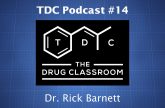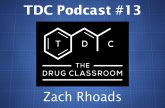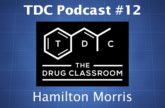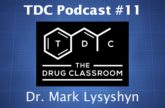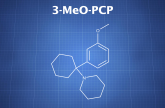A pair of studies published in the Journal of Psychopharmacology have supported psilocybin’s apparent efficacy in the treatment of cancer-related anxiety and depression. The Phase 2 clinical trials took place at Johns Hopkins University and New York University.
Both used a double-blind, placebo-controlled, crossover style. There are still limitations with the research, but the results are suggestive of a true anxiolytic and antidepressant effect of psilocybin.
With or without accompanying psychotherapy, around 80% of patients had a decrease in anxiety or depression that lasted at least six months. Participants, on average, felt their lives were more meaningful and they had a different relationship with their own mortality.
Contents
Johns Hopkins Study
This trial was led by Roland Griffiths. It involved 51 patients who’d been given a potentially life-threatening cancer diagnosis.
Participants were either given a full-dose of psilocybin (22 or 30 mg/70 kg) or a placebo dose (1 or 3 mg/70 kg). About five weeks after the first session, the participants switched and received whatever they didn’t the first time.
Study monitors were “nondirective and supportive.” They encouraged users to “trust, let go and be open.”
Results
Adverse effects
No serious adverse events occurred.
- Moderate blood pressure increases were common.
- 15% had nausea/vomiting vs. 0% with placebo
- 32% had some psychological discomfort vs. 12% with placebo
- 26% had anxiety vs. 15% with placebo
- One participant had a temporary episode of paranoia
- A minority of participants reported having a headache on the testing day or on the day after.
Neither HPPD nor prolonged psychosis occurred in any of the participants.
Findings
Psilocybin produced large and sustained effects on the primary outcome measures (anxiety and depression) and on most other measures.
The active dose experiences were associated with greater personal meaning, spiritual significance, and increased well being or life satisfaction scores for 6 months.
Mystical experience scores, even when controlling for the overall intensity of the drug, was correlated with many of the positive outcome measures. Those outcomes include lower depression, lower anxiety, increased meaningfulness, increased spiritual significance, and increased life satisfaction.
- 78% had less depression at 6 months
- 83% had less anxiety at 6 months
- 65% returned to a normal depression range at 6 months
- 57% returned to a normal anxiety range at 6 months
Over 80% of participants reported at least moderately increased well being or life satisfaction that persisted for 6 months. Two-thirds rated the experience as one of the top five most meaningful in their lives.
NYU Study
This trial was led by Stephen Ross. It included 29 patients, 62% of whom had advanced cancers.
- 90% had an adjustment disorder with anxiety or depression
- 59% had previously been treated with an antidepressant or anxiolytic
- 52% were connected to an organized religious faith (48% were atheist/agnostic)
In the sessions, they were either given psilocybin (0.3 mg/kg) or niacin (250 mg). The participants switched about seven weeks after the first session.
Psychotherapy was provided before the trial began and after each session. Ongoing support and integration was available in the months following the second session.
Adverse effects
No serious adverse effects occurred. There were no cases of HPPD, no one required benzodiazepines or antipsychotics, prolonged psychosis didn’t occur, and no psychiatric hospitalization was necessary.
Physical
- 76% had elevated heart rate or blood pressure
- 28% reported headache or migraine
- 14% had nausea
Psychological
- 17% had transient anxiety
- 7% had transient psychotic-like symptoms (one case of paranoia and one case of thought disorder)
Primary findings
Significant improvements over placebo were seen with the primary anxiety and depression outcomes.
In the psilocybin-first group, there were sustained reductions in both on 6 out of 6 measures. The niacin-first group also reported significant benefits over placebo, though only on 5 of 6 measures.
- 83% who received psilocybin first had an antidepressant response seven weeks later (vs. 14% with niacin).
- 58% who received psilocybin first had an anxiolytic response seven weeks later (vs. 14% with niacin).
Once the niacin group switched and received psilocybin, they generally received significant benefits on the primary outcome measures.
60 – 80% had an antidepressant or anxiolytic response by the end of the study.
Secondary findings
There was a decrease in demoralization and hopelessness seen from 2 weeks after administration until the end of the study. A rise in spiritual well being and quality of life was recorded.
Death anxiety wasn’t reduced, but participants did eventually report improved attitudes and adaptations towards death.
Prior to the crossover (more suggestive of a true drug effect), psilocybin was associated with positive effects on attitudes about life and self, mood changes, social effects (e.g. increased altruism), behavior, and spirituality.
Mystical experience scores were again correlated with both the primary and secondary findings.
- 70% rated it as one of the top 5 most meaningful experiences of their lives
- 52% rated it as one of the top 5 most spiritually meaningful experiences of their lives
- 87% reported an increase in life satisfaction or well being
Supplementary Videos
Published Responses
David Nutt (Neuropsychopharmacologist, Editor of the Journal of Psychopharmacology)
To many people brought up in the Reagan drug war era with the ‘drugs fry your brain’ message, psilocybin may seem a strange and possibly even a dangerous drug treatment of serious mental illness. For this reason, we have asked a number of significant figures in relevant research areas to provide commentaries on the two studies. These experts in the fields of psychiatry, trial design and end-of-life care provide their perspective on the research and its implications for clinical practice.
Jeffrey A. Lieberman (Columbia University, former president of the American Psychiatric Association)
The major methodological limitations of the studies are their crossover designs and the lack of a precisely defined therapeutic dose range.
Even though we should move towards fully understanding the mechanism of psilocybin, it’s not unique for an approved drug to be incompletely understood.
While the use of psychedelic compounds without a complete mechanistic understanding is concerning, it is not unique. The therapeutic mechanisms of other nearly-miraculous drugs such as aspirin and clozapine remain mysterious.
Some of the laws have impeded important research.
Current laws, not based on evidence, impede research by onerous storage and security requirements, difficulty in obtaining funding, and the near impossibility of actually obtaining restricted compounds without having them synthetically produced at great cost.
We do our patients a disservice by not understanding and appropriately investigating compounds with potential therapeutic value because of their prior controversial associations and on their capacity for misuse.
Alasdair Breckenridge (former chair of MHRA in UK)
These findings are very promising.
More specifically, the question is what research is needed now to be able to move the treatment from a randomised controlled environment to larger numbers of patients in a real-world care setting.
Psilocybin’s legal history and the way it’s been used in the past fits (in a general sense) with how other “repurposed” drugs have been treated.
This is consistent with other medicines that have been repurposed for new indications.
Research needs to be done on larger, more diverse populations.
Studies in larger and more heterogeneous groups of patients are needed to find clinically use predictors of response in individuals.
An important question is whether the observed benefits are sustained when applied under real-life conditions in a broader range of patients.
The logical next step would be to conduct a pragmatic trial to explore the effectiveness of psilocybin-treatment in usual care.
Having a drug be approved for use in specific settings under specific conditions is quite unique, so there are different regulatory questions that must be addressed.
There is no precedent in the current mental healthcare delivery model.
Guy Goodwin (University of Oxford, president of the European College of Neuropsychopharmacology)
The results were very comparable, and suggest a clinically important effect.
The experience to date gives reassurance that careful administration in highly supportive environments to selected clinical populations does no obvious harm.
Relying on subjective ratings, although not uncommon, is a weakness.
The outcome measures of both trials are entirely subjective, comprising self, community and clinician reports, just as most studies of antidepressants and anxiolytics have been.
While this is understandable, it is a particular weakness of any study where blinding is inadequate. Any cue that makes participants in an experimental study aware of what the experimenter expects to find or how participants are expected to behave is called a demand characteristic. These studies have demand characteristics in spades.
Researchers should be careful when focusing on the importance of “mystical” experience.
Perhaps a scale really can measure a relevant kind of experience, but it raises the caution that the investigation of hallucinogens as treatments may be endangered by grandiose descriptions of their effects and unquestioning acceptance of their value.
More simplistic receptor-based explanations for the efficacy should be explored.
Agonists at these receptor types (psilocybin is one example) may produce long-lasting conformational changes, which may, in turn, directly underlie antidepressant and anxiolytic actions.
Psychedelic experience could then simply be the automatic read-out of acute agonist actions.
Such experience might appear to mediate drug action, but it could be an irrelevant side effect.
Overcoming the regulatory hurdles won’t be easy and proponents shouldn’t move in the direction of legalization for recreational use.
It will be fascinating to see whether the various existing legal and regulatory hurdles to the use of psilocybin can be surmounted. The first requirement will be irrefutable evidence from excellent clinical trial data.
Unfortunately, it is also obvious that legalisation ‘for medical use’ could be a route that works, as it has for cannabis, as a gateway to wider access for recreational use.
Hallucinogens should definitely be an area of research.
Hallucinogens are arguably among the most interesting drugs ever discovered, so it is good to have them back in the hands of clinical scientists.
Richard Shelton (Professor, University of Alabama Birmingham) and Peter Hendricks (Associate Professor, University of Alabama Birmingham)
The findings of this research are very significant.
Papers…in this journal are notable in that they suggest a rapid, clinically robust, and sustained effect of the 5HT2A agonist psilocybin on depression and anxiety among individuals with advanced stage cancer.
The benefits were remarkable, consisting of both acute and enduring (six-and-a-half months) antidepressant and antianxiety effects.
The results of these studies are very encouraging, given the limited evidence-based treatment options for cancerrelated psychological distress.
One of the limitations is that the blinding wasn’t perfect.
Functional unblinding—the ability of participants to ascertain treatment assignment based on drug effects—is the principal limitation of the studies.
Phase 3 clinical trials should be pursued.
The results of these studies and the relative lack of serious side effects of administering psilocybin in a controlled setting support moving forward into Phase III clinical trials.
Mystical experiences seem to be important.
While statistical mediation does not necessarily imply causation, it does support the notion that the mystical experience induced by psilocybin could be a causal factor in the improvement in distress.
Psilocybin could, if further supported, be a useful part of palliative care.
Notable advantages of this approach include a supervised administration of the drug on only one or a few occasions, obviating concerns about medication adherence, and transient acute and adverse effects.
The results…suggest that psilocybin may also hold promise outside of palliative end-of-life care, a contention supported by several recent investigations.
Bryan Roth (Professor, University of North Carolina Chapel Hill School of Medicine) & John McCorvy and Reid Olsen
The findings…that one-time use of psilocybin can produce clinically relevant and apparently long-lasting effects on depressive and anxious symptoms are remarkable, and they underscore the potential for psilocybin as an alternative to first-line antidepressants.
Paul Summergrad (Tufts University Schools of Medicine, former president of American Psychiatric Association)
More completely dealing with placebo and expectation limitations will be useful in future studies.
Placebo responsiveness and expectations are of course complex issues to isolate. This is especially true in studies that included a significant percentage of participants with prior psychedelic use and who were facing serious medical and existential issues. Nevertheless, the rate and speed of response to an active drug, its intensity and duration, is decidedly more substantial than one sees in placebo responses in moderately depressed patients, even with highly committed and engaged research groups.
The results are encouraging and support pursuing additional research.
If the agents used in these studies were new investigational compounds, given the paucity of agents that have rapid effects on depressed mood, there would likely be rapid dissemination of the results, expansion of trials to larger and other clinical populations, and attempts to develop additional compounds with similar mechanisms of action.
If, after further study, initial findings were confirmed, discussions of compassionate use for individuals with severe and unremitting illness or rapid movement to approve for clinical use would likely occur.
The benefit of these experiences on mood and anxiety seemingly continued to affect them months later, despite only a single administration of psilocybin and their serious medical conditions. It is unclear at present to what degree this benefit is due to the power of these experiences, ongoing changes in neural mechanisms, or other causes.
The experiences of salience, meaningfulness, and healing that accompanied these powerful spiritual experiences and that were found to be mediators of clinical response in both of these carefully performed studies are also important to understand in their own right and are worthy of further study and contemplation.
Understanding where these experiences fit in healing, well-being, and our understanding of consciousness may challenge many aspects of how we think about mental health or other matters, but these well-designed studies build upon a recent body of work that confronts us squarely with that task.
David Spiegel (Professor, Stanford University)
Given the population used in the research, the results cannot be applied generally.
It must be said that they were conducted in a highly selected population. In the Griffiths et al. study (2016) only 10% of those initially screened made it into the study, and the reasons for exclusion were far more often not meeting inclusion criteria (n=432) rather than declining to participate (n=78).
They had to be informed about the type of drug to be evaluated, so to begin with these were people inclined to believe that a psychedelic drug might help them at this time in their life.
Experiences like those enabled by psilocybin may have a place in cases of depression.
The effect of such an experience seems to be powerful and lasting, and cannot be fully explained by simple neuropharmacology. Intensification of subjective experience is invigorating. Even depressed patients have told me, “I wish I could just have a good cry.” They feel numb as well as sad.
Craig Blinderman (MD, Columbia University Medical Center)
If these findings are confirmed, or other therapeutic effects are demonstrated, in large, powered, randomized controlled studies in a diverse population of patients, then the classification of psilocybin as a Schedule 1 drug should be challenged, for this would represent a treatment modality unlike anything in psychiatry: a rapid and sustained reduction in depression and anxiety with a single dose of a psychoactive compound (combined with guided psychotherapy).
When we consider the lack of evidence for the treatment of psycho-existential distress and the ethical dilemma in palliative care of when (and whether) to use intermittent or terminal sedation for “refractory” and/or severe existential distress, psilocybin may offer a potential therapeutic modality to offer before embarking on such a final and ethically controversial decision.
Benjamin Kelmendi, Philip Corlett, Mohini Ranganathan, Cyril D’Souza, & John H Krystal
These results bring up many questions for future research.
Perhaps future studies could shed some light on this relationship by employing other drugs, such Salvinorin A and other kappa opioid receptor agonists, capable of producing perceptual alterations and mystical experiences similar to serotonergic hallucinogens but pharmacologically different.
Also intriguing is whether the psychoactive effects of psilocybin influence its efficacy through, not yet fully understood, psychological mechanisms that continue to exert their effect well beyond the acute pharmacological effects.
Is there a differentially unique characteristic about the pharmacology of psilocybin and its enduring clinical effects compared with other serotonin receptor (5-HT2A) agonists such as dimethyltryptamine or dipropyltryptamine?
These studies have demonstrated a critical advancement in this field. Psilocybin may offer a novel and potentially valuable approach for addressing the psychological suffering of dying often observed in this patient population, particularly given the limited efficacy of extant treatments.
These studies also raise a number of important questions that warrant further research. How necessary are the acute psychedelic effects of psilocybin for its antidepressant and anxiolytic effects? What are the predictors of beneficial effects and adverse effects? Would moderate doses have similar effects? How specific are the effects? For a single dose of a drug to have effects that are still detectable six months later opens a new era of potential psychopharmacological treatments. But it also begs the question about what is/are the mechanism/s underlying the sustained beneficial clinical effects of psilocybin.
Herbert Kleber (Professor, Columbia University)
Even though the JHU study didn’t involve formal psychotherapy, efficacy wasn’t clearly reduced.
Despite the less formal psychotherapy approach used in the JHU study, the overall baseline versus six months post effect size changes on the same key measures of anxiety and depression were somewhat higher in the JHU study than they were in the NYU study, thus suggesting that the more formalized therapist training did not confer a significant enduring therapeutic advantage.
Primary Papers
Published Responses
(Jeffrey Lieberman, Daniel Shalev) Back to the future: Research renewed on the clinical utility of psychedelic drugs
(Guy Goodwin) Psilocybin: Psychotherapy or drug?
(Paul Summergrad) Psilocybin in end of life care: Implications for further research
(Craig Blinderman) Psycho-existential distress in cancer patients: A return to “entheogens”
(Richard Shelton, Peter Hendricks) Psilocybin and palliative end-of-life care
(John McCorvy, Reid Olsen, Bryan Roth) Psilocybin for depression and anxiety associated with life-threatening illnesses
(Herbert Kleber) The successful return of psychedelics to psychiatry
(Benjamin Kelmendi, Philip Corlett, Mohini Ranganathan, Cyril D’Souza, John Krystal) The role of psychedelics in palliative care reconsidered: A case for psilocybin
(David Spiegel) Psilocybin-assisted psychotherapy for dying cancer patients – aiding the final trip
(Alasdair Breckenridge, Diederick Grobbee) Psilocybin: promising results in double-blind trials require confirmation by real-world evidence
Relevant Papers
(2015) Psilocybin-assisted treatment for alcohol dependence: a proof-of-concept study.
(2014) Pilot study of the 5-HT2AR agonist psilocybin in the treatment of tobacco addiction
(2011) Pilot study of psilocybin treatment for anxiety in patients with advanced-stage cancer.
(2006) Safety, tolerability, and efficacy of psilocybin in 9 patients with obsessive-compulsive disorder.
Supplementary Papers
(2015) Antidepressants for the treatment of depression in people with cancer.










